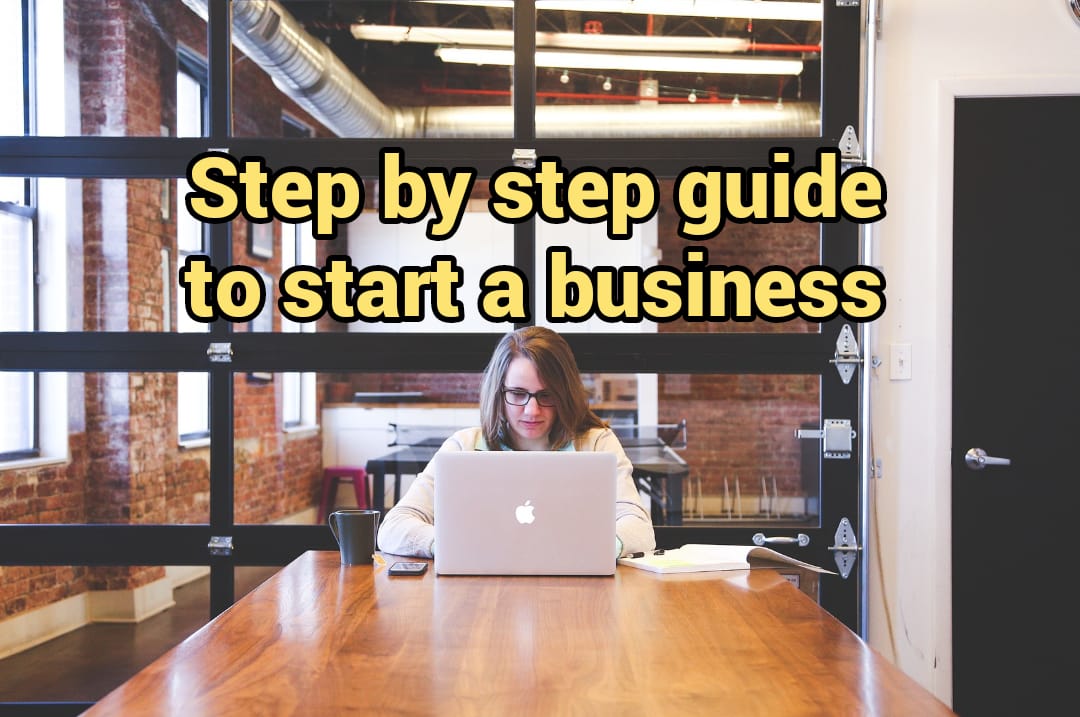
Ready to take the plunge and become an entrepreneur? Starting a business can be overwhelming, but with the right knowledge and planning, it’s possible to get your business up and running in no time.
In this article, we’ll provide you with a step-by-step guide to starting a business from scratch, covering everything from finding a business idea to hiring employees.
How to find a business idea
There are a few different ways that you can go about finding a business idea. The first way is to think about what you’re passionate about and what you’re good at. What are some problems that you see in your industry that you feel confident you could solve? Are there any unmet needs or underserved markets in your area?
Another way to come up with a business idea is to look at trends in your industry and see if there are any new or emerging markets that you could tap into. What are people talking about in your industry? Is there anything that’s been gaining traction lately?
You can also try brainstorming with friends, family, or other entrepreneurs. Ask them what they think the world needs more of and see if anything resonates with you.
Once you have a few ideas, it’s time to start doing some research.
See if there’s already a market for your product or service and if there’s potential for growth. Talk to people who might be your target customers and get their feedback on your idea. This will help you validate (or invalidate) your idea and give you a better sense of whether or not it’s worth pursuing.
Write a Business Plan
If you’re thinking about starting a business, one of the first things you should do is write a business plan. This document will outline your business goals, strategies, and how you plan to achieve them.
Here are some tips for writing a great business plan:
- Define your goals and objectives. What do you want to achieve with your business? What are your long-term and short-term goals? Be as specific as possible.
- Do your research. Before you start writing your plan, it’s important to understand your industry and what it takes to be successful in it. Research your competitors, learn about trends and challenges, and identify opportunities for your business.
- Know your audience. When you’re writing your business plan, who will you be presenting it to? Make sure you tailor the language and level of detail to match your audience’s needs and expectations.
- Keep it concise. A business plan is not a novel; it should be short and to the point. Get straight to the point and use simple language that everyone can understand.
- Make it visual. People are more likely to remember information if it’s presented in a visually appealing way.
Choose a business structure
There are many different types of business structures to choose from when starting a business. The most common types are sole proprietorships, partnerships, limited liability companies (LLCs), and corporations.
Sole proprietorships are the simplest type of business structure. They are owned and operated by one person, and there is no legal distinction between the owner and the business. Sole proprietorships are easy to set up and require little paperwork. However, they offer no personal liability protection for the owner, meaning that the owner is personally responsible for all debts and liabilities of the business.
Partnerships are similar to sole proprietorships in that they are owned and operated by two or more people. However, unlike sole proprietorships, partnerships offer personal liability protection for the partners. This means that each partner is only responsible for their own actions and not liable for the actions of the other partners. Partnerships can be either general partnerships or limited partnerships. In a general partnership, all partners share equally in the profits and losses of the business. In a limited partnership, there is at least one partner who has limited liability (meaning they are only responsible for their own investment in the business).
Limited liability companies (LLCs) are a hybrid between sole proprietorships and corporations. LLCs offer personal liability protection for the owners (called members), like corporations, but have simpler rules and regulations than corporations. LLCs can be either single-member LLCs (owned by one person) or multi-member LLCs (owned by more than one person).
Corporations are the most complex type of business structure. Corporations are separate entities from their owners, which means that the owners have limited liability and cannot be held personally responsible for the debts and liabilities of the corporation. Corporations must follow complex rules and regulations, and have higher costs associated with set up and ongoing maintenance.
Keep taxes in place as a small business
As a small business, it is important to keep your taxes in place. This will ensure that you are able to stay in business and make a profit. There are a few things that you need to do in order to keep your taxes in place.
The first thing that you need to do is to register your business ,You will need to provide your business name, address, and contact information.
Once you have registered your business, you will need to file your tax return. You will need to provide your business name, EIN/PAN/TIN, and contact information. You will also need to provide your income and expenses for the year.
It is important to keep track of your taxes so that you can stay in compliance with the law. You should keep records of all of your income and expenses so that you can easily prepare your tax return each year. You should also keep track of any tax deductions that you are entitled to claim.
If you are not sure about anything related to taxes, it is important to seek out professional help. There are many tax professionals who can help you with any questions that you may have.
Open an account at the bank
Opening a bank account is one of the first steps you’ll need to take when starting a business. A business bank account will help you manage your finances, pay bills and invoices, and accept payments from customers.
To open a business bank account, you’ll need to have the following information and documents:
Your business name, address, and contact information
Your Social Security number or Employer Identification Number (EIN) or PAN(Permanant account number)
A government-issued ID, such as a driver’s license or passport
Articles of incorporation or other formation documents, if applicable
Once you have all of the required information and documents, you can begin the process of opening a business bank account. Many banks will allow you to open an account online, but some may require that you visit a branch in person.
When you’re ready to open your account, be sure to comparison shop to find the best deal for your needs. Some banks offer special benefits for small businesses, so be sure to ask about any available discounts or perks.
Once your account is open, you’ll need to start making deposits and withdrawals. Most banks offer online banking options that allow you to manage your account from anywhere. It’s important to keep accurate records of all of your financial transactions, as this will help you keep track of your spending and ensure that you’re paying your taxes on time.
Get finance for your business
There are a number of ways to finance your business. You can use your own savings, take out a loan, or raise money from investors.
If you’re using your own savings, be sure to create a budget and stick to it. Don’t overspend on unnecessary things, as this will put you at risk of running out of money before your business is up and running.
If you’re taking out a loan, be sure to shop around and compare interest rates. You don’t want to end up paying more than you have to in interest. Be sure to read the fine print and understand the terms of the loan before signing anything.
If you’re raising money from investors, be sure to have a solid business plan in place. Investors will want to see that you have a well-thought-out plan for how you’re going to make money and grow the business. They’ll also want to see that you have a good management team in place.
No matter which financing option you choose, it’s important to make sure that you have a clear understanding of the risks and rewards involved. Don’t take on more than you can handle, and make sure that you always have an exit plan in case things don’t go as planned.
Hire your first employees
You’ve spent months (or maybe even years) planning and preparing to launch your business. The day has finally arrived—you’re open for business! But now what? One of the first things you’ll need to do is hire your first employees. This can be a daunting task, but we’re here to help.
To start, take a look at your business plan and identify the skills and experience you’ll need to make your business successful. Then, start thinking about the kind of people you want to work with. Do you want a team of experienced professionals? Or are you looking for fresh talent? Once you have a good idea of the type of people you need on your team, it’s time to start recruiting.
There are a number of ways to find potential employees, including online job boards, social media, and good old-fashioned word-of-mouth. Once you’ve found some candidates, it’s time to start interviewing. Be sure to ask each candidate about their relevant experience and skills, as well as their interest in working for your company specifically.
After you’ve interviewed all of the candidates, it’s time to make your decision and extend an offer to your chosen employee(s). Congratulations—you’ve just taken your first step towards building a successful business!
FAQ
No, you don’t necessarily need a formal business plan, but it can be helpful to sit down and think about your objectives for starting a business, your target market, and how you plan to achieve your goals.
This varies depending on the type of business you want to start, but you may be able to get started with a small amount of seed money. Keep in mind that it takes time and money to grow a successful business, so don’t be discouraged if you don’t have a large amount of capital to start with.
The legal requirements vary depending on the type of business and where it is located, so it’s important to do some research or consult with an financial expert before getting started. Some businesses may require licenses or permits from local or state governments.
One common mistake is failing to properly research the market or their competition. It’s also important to have realistic expectations for how much time and money it will take to get your business off the ground. Finally, don’t try to do everything yourself— delegate tasks and build a strong team of employees or contractors who can help you grow your business.

